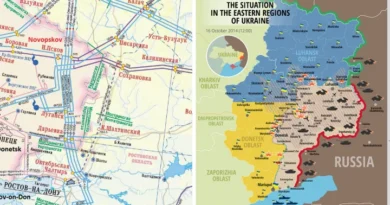Alternatives & Analyses: Bulgargaz vs Bulgartransgaz – still waiting for the gas Godot
The completion of Balkan Stream and the expected start of gas supplies from the Shah Deniz 2 gas field next month have exacerbated tensions between the state gas trader Bulgargaz and the TSO Bulgartransgaz. The conflict is all too visible to be ignored, even by interventions at the top. The government has given carte blanche to BTG’s management to enter into a $ 3 billion debt to facilitate the geopolitical powerplay of Gazprom and the Kremlin in TurkStream. The debt seems excessive against BTG’s projected revenues and could, at least in theory, sink the company.
Concurrently, Bulgargaz faces similar existential threats due to its supply contracts with Gazprom and the Azerbaijani Gas Supply Company.
Tough times are coming, and the management of both companies are independently seeking to pre-empt and manage the looming crisis. The panic and disarray is likely to come to light at the forthcoming RoundTable ‘ LNG in Bulgaria – 2020 and beyond”, organized by Bulgartransgaz and the US Embassy.
The Embassy is doing its best to promote the interests of US companies, and the event will represent an opportunity for participants to hear first-hand the top management of the two state-owned companies on the chances for gas trade and transit in and via Bulgaria.
Since Alex Alexiev and I organized in the spring of 2019, in tandem with the U.S. Institute for Energy Research and AmCham, the first Roundtable on the Potential of LNG for Bulgaria, which was attended by PM Borissov, little progress has been registered.
Loads of words and promises made but not a single cubic meter of North American or other LNG has been bought or transited in direct deals with U.S. companies by either Bulgargaz or Bulgartransgaz.
Dependence on natural gas imports from Gazprom dropped from 99 per cent in 2018 to 81 per cent in 2020, quite short of the 50 per cent promised by Energy Minister Petkova during her trip to the US at the beginning of the year.
Competition to Gazprom remains a taboo for Bulgargaz and Bulgartransgaz. In Europe and America, the companies compete benchmarking their performance to the prices on the spot markets, while in Bulgaria, traders benchmark their price offering to the regulated price, which is de facto Gazexport’s price.
As direct purchases of U.S. LNG by Bulgargaz are neither planned nor pending, Bulgartransgaz as a co-host might try to brighten up the negative record with another shot of virtual reality of trade and transit with non-Russian gas in the unspecified future. BTG might even announce intended purchases of U.S. LNG for its technical needs.
Bulgargaz has no range to buy any more gas, LNG or piped, with its hands tied by the two long-term contracts with Gazexport and AGSC. Mandatory purchases in both contracts exceed domestic consumption by at least 0.5 bcm. The management of the company wasted years to transform it from an invoices clearinghouse into a real regional gas trader with broader client portfolio outside Bulgaria.
Bulgargaz has a hovering Damocles’ sword above its head with the $ 100 million purchase guarantees under the Azeri gas supply contract or twice higher penalties for non-compliance with the “take or pay” clause with Gazexport. The company’s management has failed to negotiate a change in the price formula of its Azeri gas contract, adding to it a spot price element, that could have made it more price competitive.
These articles analyses and comments are made possible thanks to your empathy and contributions, which are the only guarantors of independence and objectivity in our work. The Alternatives and Analysis team.
An additional aggravating circumstance is that gas futures in the EU and U.S. gas exchanges are not indicating expectations for a cold winter, and a bullish gas market with higher spot prices than oil-indexed ones.
Over the last more than ten years, Bulgartransgaz failed to expand the UGS “Chiren” to allow the storage of “excess” quantities of natural gas, in anticipation of better circumstances. The financial noose around Bulgargaz is tightening, and it is by no coincidence that its management sharpened the tone to its debtors, with a slim chance that this will bear effect on immediate repayments. Banks are equally reluctant to extend new loans.
Milking the BEH cow is a no go – its credit ‘milk’ has dried up. The government retains the last resort option with a capital increase, but in the middle of a pandemic, such a move would look highly unpopular.
The fact is that the Bulgarian government instructed Bulgargaz to sign the preliminary contract for Azeri gas five years ago, and later to pay a $ 100 million purchase guarantee that has added to the plight. Judged against natural gas abundance today, such moves do not seem justified. When the Shah Deniz-2 consortium launched its project, preliminary long-term supply contracts seemed indispensable to recover investments in the Southern Gas Corridor and secure alternative supplies to Gazprom. The EC encouraged and pushed for these contracts, yet when payday came, Turkey and Greece renegotiated the oil-indexed formula. At the same time, Bulgaria had to cope with the reluctance of the Shah Deniz consortium on its own.
Bulgargaz’s problems further aggravated with the completion of the Turk-Balkan Stream. Bulgartransgaz ignored the negative consequences from the project on the Bulgarian and other gas traders, allowing exclusive transit entry/exit capacity allocation to Gazexport to limit and even block “excess” of non-Russian gas to potential markets in North Macedonia and Serbia. Entry capacities in both countries are 100 per cent reserved for Gazexport. The strong negotiating cards were in Bulgartransgaz’s deck, but its management and owner – the Bulgarian government, chose to cast a blind eye.
The negative news for LNG in Bulgaria and beyond soar as Azeri gas is likely to crowd out LNG in the interconnector Siderokastron-Kulata, compromising already limited fixed and intermittent capacity for gas streams coming from the Revithoussa terminal. This situation will continue until the autumn of 2021 and the commissioning of the Greece-Bulgaria interconnector.
For Bulgargaz, selling Azeri gas on the Bulgarian gas exchange is not an option either as demand is scarce, and its price is not competitive.
Worth recalling is the axiom on the national interest in the field of trade and transmission of natural gas. There is no national interest in prioritizing the dominant role of any foreign company over the national and regional market, much less in spending billions on contentious transmission infrastructure with no immediate or significant benefit to the Bulgarian gas consumers. The national interest is therefore defined at the gas consumer level and not at the level of the transit system operator.
The government, however, seems to think otherwise.
To limit further the scope for competition and options for cross border gas trade, BTG has failed to conclude the intersystem agreement with the TSOs of Turkey, Serbia and North Macedonia, leaving the exclusive right to sell gas to its favourite client – Gazexport.
Romania and Greece are oversupplied with natural gas, i.e. are not an option for sales of the “excess” natural gas on the balance sheet of Bulgargaz.
Trans-Balkan pipeline reverse flows to Ukraine are also hard to imagine for lack of adequate capacity allocation and integrated tariffs.
Prime Minister Boyko Borissov trusts the jointly organized event with the US Embassy could sink the breaking news of the day, that the US Congress passes with a bipartisan consent the National Defense Authorization Act, featuring more substantial and specific sanctions against the Turk Stream gas pipeline and its onshore segment in Bulgaria. For the first time in modern history, the United States impose sanctions on critical infrastructure in Bulgaria, which, all other things being equal, marks a nadir in bilateral relations.
In all likelihood, the representatives of U.S. and Bulgarian companies attending the LNG Roundtable will receive another batch of promises for business with gas in Bulgaria in the unspecified future. In real terms, the government underwrites the monopoly of Gazexport in the region. BTG is a direct accomplice in this by limiting and even blocking access to the transit infrastructure it operates to American and European competitors, including Bulgargaz.
Lack of equal treatment runs at odds with EU policies, laws and regulations, and certainly counter to commitments to collective energy security within NATO.
As the management of Bulgartransgaz denied me access to the LNG Roundtable, in line with its standards for media freedom and tolerance to different opinions, I chose to make public this analysis in the hope that it will provide a balancing expert viewpoint in the debate.
Ilian Vassilev
Thank you for your donnations via PayPal and bank transfers to IBAN BG58UBBS80021090022940




